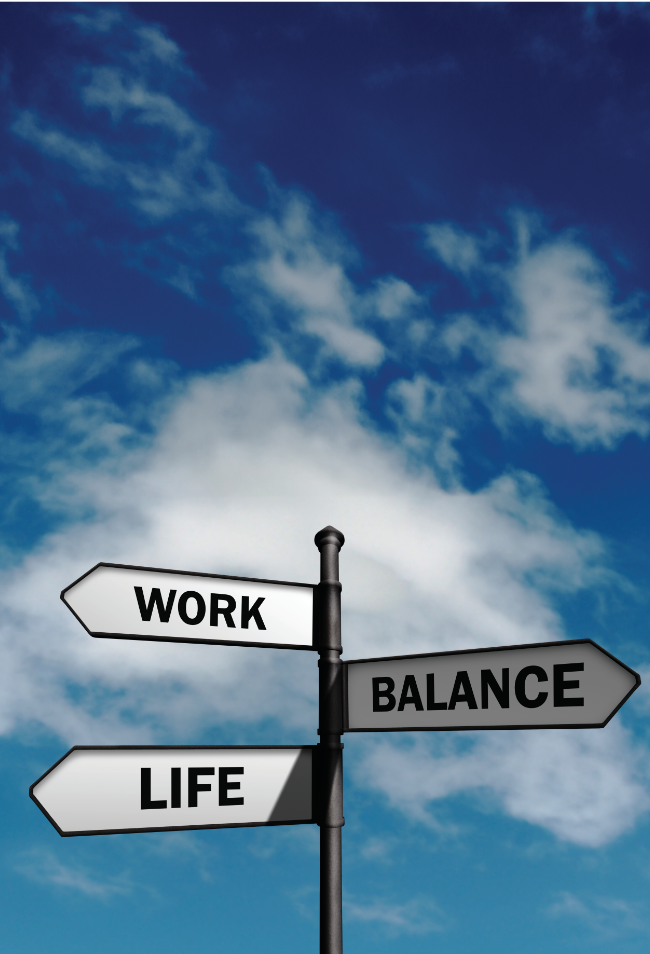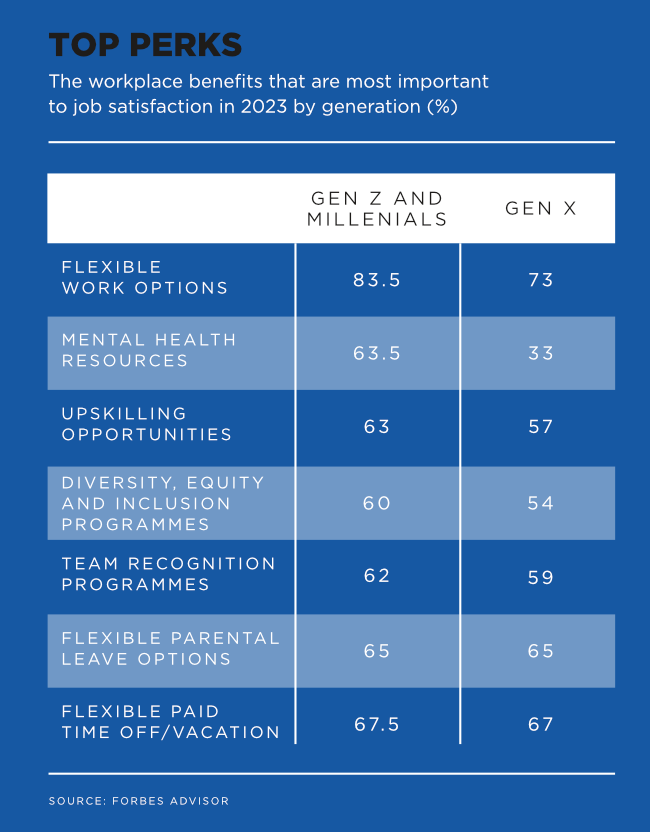In the ever-evolving landscape of the professional world, millennials are emerging as a force to be reckoned with. Unlike previous generations, this demographic cohort is characterised by a desire for more than the traditional 9-5 work structure. As companies strive to attract and retain young talent, they are recognising the need to adapt to the changing expectations and values of this generation.
Millennials (born between 1981 and 1996) and Gen Z (1997 and 2012) have grown up in a digital age marked by rapid technological advancements and a shifting socio-economic landscape. They place a premium on work-life balance, personal growth and a sense of purpose in their professional endeavours. It stands to reason then that there’s a noticeable trend among young professionals who increasingly prioritise personal values when selecting their workplaces, and want to make a positive impact on the world.
This premise is supported by Deloitte’s 2023 Gen Z and Millennial survey, which gathered feedback from more than 22 000 Gen Z and millennial respondents in 44 countries regarding their attitudes about work and the world around them.
Respondents believed that businesses ought to play a leading role in addressing various social issues. In fact, 44% of Gen Zs and 37% of millennials said they had rejected assignments due to ethical concerns, while 39% and 34% respectively had turned down employers that did not align with their values.
In response to this growing sentiment, companies are incorporating social and environmental responsibility into their corporate values, with many actively engaging in philanthropy, sustainable business practices and community involvement to attract millennials who are seeking a sense of purpose in their work, beyond financial compensation. The same report highlights that while 49% of Gen Z individuals and 62% of millennials acknowledge that work holds a central place in their identity, they are actively pursuing a better work/life balance.
One of the primary shifts in the corporate world to accommodate millennial preferences is the adoption of flexible work arrangements. Many companies are moving away from the rigid 9-5 schedule, instead embracing remote or hybrid work options, compressed work weeks and flexible hours. This allows millennials to better balance their personal and professional lives, fostering a more positive and productive work environment.
According to the Deloitte report, ‘the survey data consistently shows that […] Gen Zs and millennials prefer hybrid work’, although hybrid work can take on different forms. ‘The top preference among Gen Zs and millennials is to have full choice in where they work. This might mean working remotely all or most of the time and going to a common workplace or meeting with colleagues once a week, once a month or even once a year. Or it could mean working on-site more regularly while occasionally working from home.
‘Less than two in 10 Gen Zs and millennials want a fully remote work pattern, in which they don’t go to a physical workplace at all, signalling that some in-person collaboration with colleagues is important to these generations – but they want it to be on their terms.’
The pandemic may have accelerated the adoption of remote work, but millennials have been at the forefront of this transformation, and some companies are capitalising on this trend by offering remote work options as a permanent part of their workforce strategy.
‘Flexwork, also known as flexible work arrangements, refers to a work schedule that allows employees to have some control over when and where they work. It encompasses options such as telecommuting, compressed work weeks and flexible hours,’ says software platform Officely in an online article. ‘These arrangements offer employees the freedom to balance their personal and professional lives, resulting in a more engaged and satisfied workforce. Many professionals are actively seeking organisations that prioritise flexibility and work-life balance.
‘By providing flexwork options, you position yourself as an attractive employer of choice. And by accommodating their needs, you create an inclusive and supportive work culture that appeals to a wider range of candidates.’
Corporate wellness programmes have also taken centre stage as companies seek to address the holistic well-being of their employees. Millennials, known for prioritising mental health and work-life balance, are drawn to employers that provide wellness initiatives such as fitness classes, mental health resources and stress-management workshops. Little wonder, then, that a company’s mental health support and policies are among the top factors for millennials considering a potential employer, as cited by 80% of respondents in the Deloitte survey.
Beyond broader societal concerns, the primary stressors for both Gen Z and millennials revolved around financial matters and the well-being of friends and family. Workplace issues – including demanding workloads, inadequate work/life balance and unfavourable team cultures – contribute significantly to this stress. The elevated pressure within work environments has resulted in a notable increase in burnout levels among these generations. Some 52% of Gen Z and 49% of millennials reported experiencing burnout, a rise from 46% and 45%, respectively, in 2022.
The survey also revealed that 36% of respondents consistently felt exhausted, 35% experienced mental detachment from their work and 42% frequently struggled to perform at their best.
Many organisations offer a range of mental health support tools. However, while 57% of Gen Zs and 55% of millennials acknowledged that their employers are taking mental health seriously, less than one-third of Gen Zs – and even fewer millennials – used them. In fact, compared to Gen Zs, the only mental health resource millennials are more likely to take advantage of is vacation time.
Traditional benefits such as health insurance and retirement plans are no longer sufficient to entice millennials. In showcasing a commitment to creating a workplace that values their millennial workforce and their individuality, companies are becoming creative with their perks, offering student loan assistance, pet-friendly offices, paid volunteer time and opportunities for upskilling, among other benefits.
In an article by CHRO South Africa, Donald Khumalo, human capital executive at FNB, says that his organisation has become deliberate at looking at sustainable ways to assist youth and young talent in developing the necessary skills that will help them in the future. ‘Professional development and career mobility are a key retention lever for young talent, and these opportunities are enabled through a variety of programmes in leadership development, support for ongoing studies, access to online courses through Udemy, as well as a broad spectrum of talent mobility and development programmes supporting career insights through mentorship and talent-engagement initiatives.’
Recognising millennials’ entrepreneurial spirit, many companies are also creating internal programmes that allow employees to work on innovative projects and ideas within the business. This ‘intrapreneurial’ approach not only fosters a culture of innovation but also provides millennials with the autonomy and creative outlets they crave.
Take Google, for instance. Renowned for its innovative workplace practices, its 20% Time initiative allows employees to spend 20% of their work week on projects of their choice, fostering a culture of creativity and ‘intrapreneurship’. It’s an approach that has resonated particularly well with millennials, who value autonomy and the opportunity to contribute to innovative ideas.
When attracting the younger generation to a workforce, companies would be well advised to avoid employing a one-size-fits-all approach and, instead, acknowledge the need for specific policies and processes to be adapted. After all, the world of work is undergoing an evolution, and the only constant that can be relied on is that it will continue to change.










